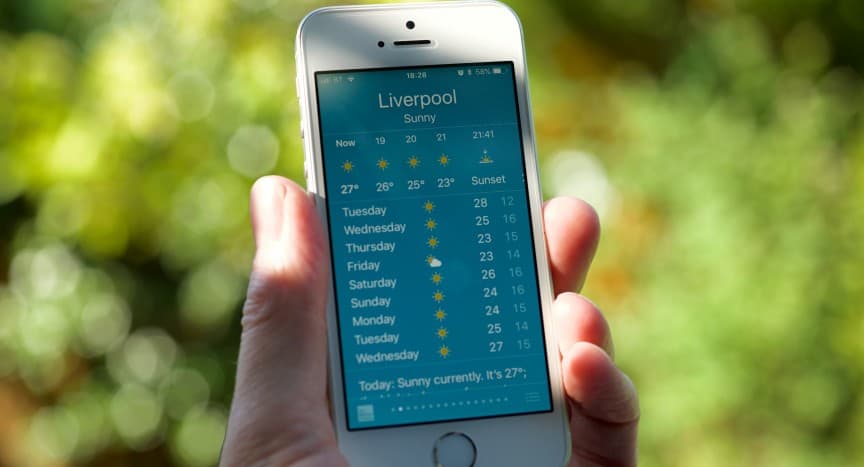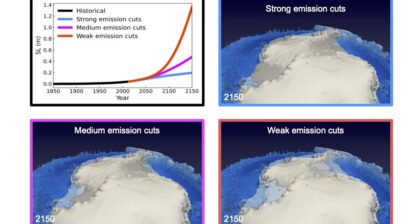The United Kingdom is experiencing an extended heatwave and Friday August 7, 2020 was its hottest day for 17 years, when temperatures soared to 36.4C in the southeast of England. Two weeks before that the Met Office recorded the third hottest day on record with temperatures reaching 37.8C.
This week temperatures above 34C were recorded in southern England and Wales for six days in a row, for the first time since 1961 and the Met Office heat wave criteria were reached with four days above 28C. Such persistent hot weather creates ideal conditions for thunderstorms that bring heavy rain, flash flooding and lightening. Already, lightning and thunderstorms hit many areas on August 12, 2020, following a week of hot weather. Temperatures are expected to hit 34C in some areas in the southern part of the UK by the end of the week.
What is a heatwave?
According to the Met Office, it is an extended period of hot weather relative to expected conditions of a particular area at a specific time of the year, which may be accompanied by high humidity. In the UK, a location has to record at least three consecutive days with daily maximum temperatures meeting or exceeding the threshold, which varies by county.
What sets off a heatwave?
When high-pressure systems develop over an area, they can set off persistent hot weather – usually in the summer. High-pressure systems are slow moving and can settle over an area, prolonging hot weather conditions for days or even weeks. The polar jet stream (which resides over the UK) can also play a role, when it moves to the north of the UK in the summer.
Is climate change intensifying hot weather?
One of the consequences of climate change is an increase in the intensity and frequency of extreme weather events. And heatwaves are extreme weather events, as are droughts, excessive precipitation, hurricanes and storms. Research clearly shows that climate change is definitely making these events more frequent and intense. The World Weather Attribution initiative has been conducting analyses of extreme weather occurrences and it has found that the highest annual daily average temperatures were warmer across the globe than a century ago.
(Read Pollution in the UK)
According to the UK Met Office “summer 2018 was the equal-second warmest summer in a UK series from 1884 for mean maximum temperature (shared with 1995) with summer 1976 hottest”. A study by the Met Office showed that “likelihood of the UK experiencing a summer as hot or hotter than 2018 is a little over 1 in 10. It is 30 times more likely to occur now than before the industrial revolution because of the higher concentration of carbon dioxide (a greenhouse gas) in the atmosphere”.
Greenhouse gas (GHG) concentrations are increasing in the atmosphere and with them so are the frequency and intensity of heatwaves (in addition to other extreme weather events), which will be hotter and longer. Due to these GHG emissions, the average global temperatures have increased by 1C since pre-industrial times (1850-1900) and in the UK, temperatures have risen by a similar number.
How many records have been broken in the UK?
Generally, the UK does experience occasional heatwaves, but their intensity and frequency is lesser than elsewhere in the world. In addition to the 2018 summer, which saw temperatures of 35.6C in Suffolk, in August 2003, the UK experienced heatwave conditions lasting 10 days and resulting in 2,000 deaths, with a maximum temperature of 38.5C recorded in Kent. This 2003 maximum was broken in the summer of 2019, at Cambridge University Botanic Garden on 25 July, with 38.7C. According to World Weather Attribution, this heatwave in the UK was made twice as likely because of climate change.
The current heatwave is expected to be followed by extensive thunderstorms across the UK, which will likely result in floods and damage to life and infrastructure. This has already been seen in 2019, when extensive floods caused havoc in many locations.
There is absolutely no doubt that our extensive and excessive release of greenhouse gases is causing changes to our climate at an unprecedented rate. We are already on our way to cross 2C – an increase that threatens life on this planet, including us. Unfortunately, our efforts are still too slow to curtail this rise.
Image: Photo by Gavin Allanwood on Unsplash
The selected Optin Cat form doesn't exist.[donate-with-info]







